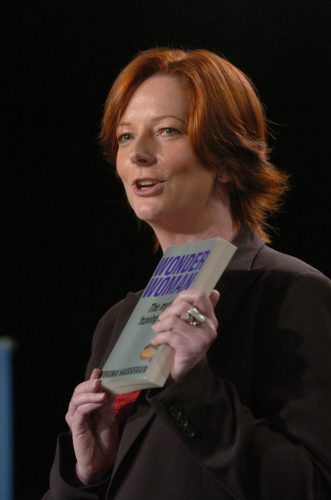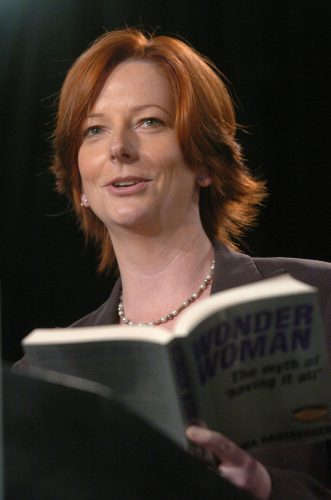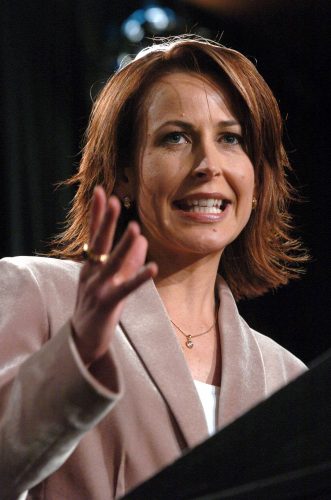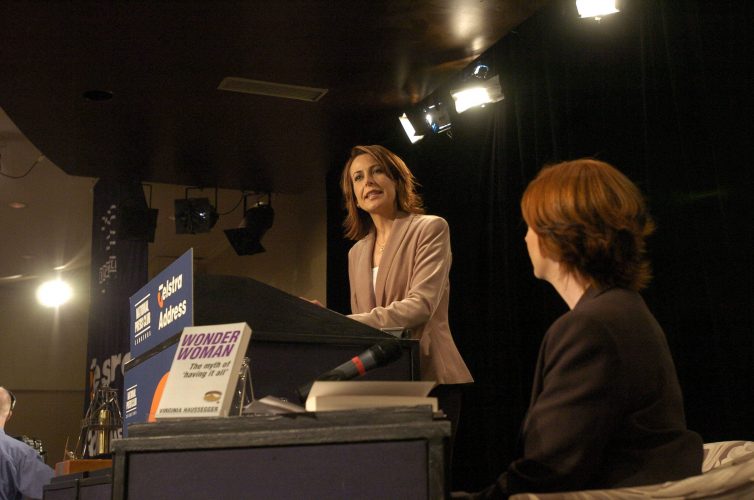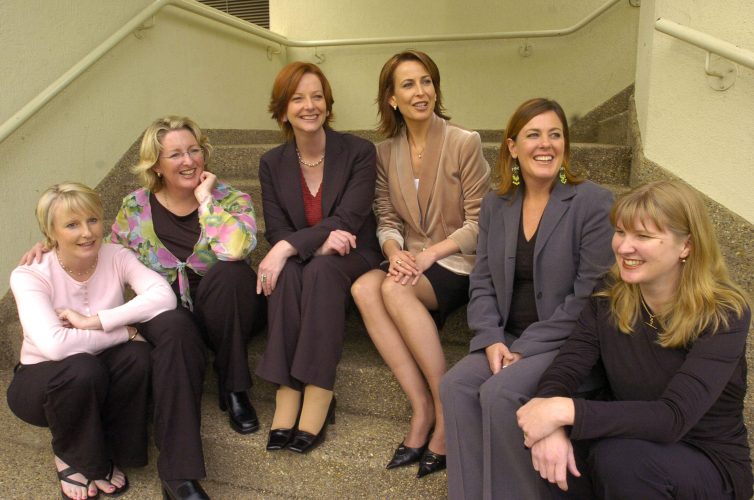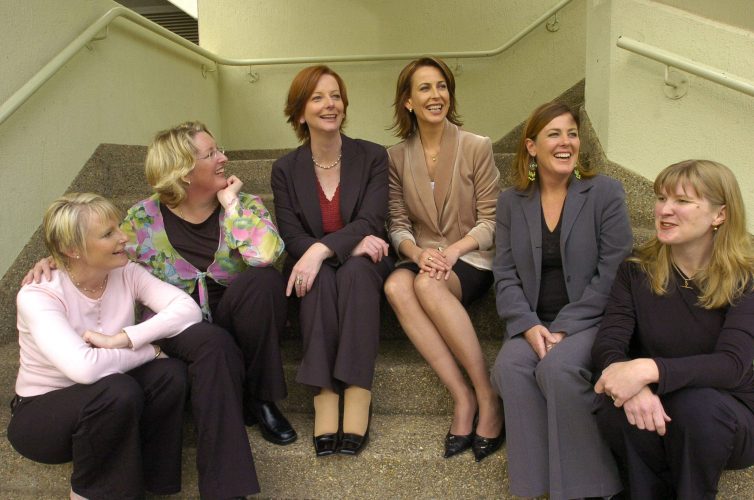If only “Baby it’s time”, as chronicled by Bettina Arndt (The Herald, April 12) could be retitled “Time’s up the game is over!” Now that the penny has dropped and we’ve all read with interest about this new socio-economic group – the single, childless, career women – let’s stop gawking and take a deeper look at what has led a growing number of women to find themselves in this vexed situation.
When I outed myself as childless and angry (“The sins of our feminist mothers”, on this page last July), a floodgate burst open and a tidal wave of emotion and fury poured forth. The response was overwhelming and kept me in a state of shock for weeks as the poisoned pens let fly.
Why did people care so passionately about my sad, barren state. Maybe in matters so utterly personal and so privately painful, you shouldn’t stick your head up. I did and I was punished for it. “Meet Virginia, the women some love to loathe”, was one headline. I was called everything from “petulant” to “a brat” to “shameful”.
It wasn’t all bad. Some of the letters I received were beautiful: utterly humbling in the compassion, humanity and gentle encouragement expressed. But it was the fury that interested me the most. Why such venom?
It seems that even now, three long decades after the advent of second-wave feminism in Australia, we’re not allowed to question it. Not allowed to publicly ponder the messages so boldly and fiercely enunciated by my mother’s generation – our feminist foremothers.
But it’s time. This is not about picking a catfight – it’s far too important for that. It’s about trying to untangle some of the “mis-messaging” that feminism has allowed to linger, and is now partly responsible for getting us into the miserable fix in which many women find themselves: independent, successful, solid careers, nearing 40, childless, many partnerless, and wondering what the hell went wrong.
Feminism sent some very powerful messages to girls growing up in the ’70s and ’80s in Australia. We are all (men and women) beneficiaries of the ground-breaking policy changes brought about by the tireless efforts of a strong band of femocrats, feminist lobbyists and liberationists.
But woven into the fabric of this feminism was a very strong message about motherhood. The role of motherhood was presented to my generation as a handicap, a hindrance and potentially a major obstacle to any girl reaching her full potential. It was a man’s world we had to take on, and that was to be done in a manly way. Definitely not with a bulge in the stomach or baby on the breast.
The truth of motherhood being a handicap was certainly reinforced once we entered the workforce. During my first foray into commercial television, the high-profile executive who interviewed me for a reporting job was more interested in my attitude to babies than my qualifications. “The problem is,” he huffed, “we get these smart sheilas in here and they keep going off and having kids.” I fully understood the test and quickly launched into a diatribe on the horrors of maternity. I got the job.
While it’s now unlawful for employers to discriminate against women who might express a desire to be a mother – thanks to feminist-enforced changes to the law – nevertheless we all know working women who still desperately try to keep quiet the fact that they are mothers (while men boast at work about their fatherhood).
We all know women who are run ragged trying to juggle the ludicrous pressures of full-time work and mothering – trying to fit two jobs into one. They’re the ones with an eye on the clock during late-afternoon meetings, trying to stay focused. Each working day seems to start with baby vomit on their suit and a gallon of guilt. It’s hopeless.
They could well be wondering, Where’s feminism now? And it’s a fair question. How is feminism helping women sort through the enormous load of expectation it has created for women to succeed beyond being “just mothers”?
And for those of us who heard the bugle cry to go forth and conquer, have we taken the notion of equality to ridiculous extremes? To truly reach our potential – as passionately inspired by our feminist mothers – have we forfeited our “femaleness”, turned down the sound of our biological clocks, and blithely and unwittingly accepted that the workplace can only operate according to “male rhythms”, as historian Professor Marilyn Lake puts it? Lake suggests the Australian workplace is organised around the assumption that the worker is masculine: independent, autonomous and free from domestic responsibilities. She’s right, and women have accepted it. Where’s the feminism in that?
But perhaps the most important question for feminism right now is, Has it been laid to rest? Is it over?
The Prime Minister certainly thinks so. Last July he said bluntly: “We are in the post-feminist stage of the debate.” He added: “I find that for the under-30s woman…the feminist battle has been won.” And the truth is, so do many young women.
At the recent WomenSpeak 2003 conference in Canberra, a former Young Businesswoman of the Year, Gabrielle Molnar, lowered her voice when I asked if she described herself as a feminist.
“No.”
“Why not?”
“I don’t think it serves or supports my cause.”
Gabby has a high-profile job as a company executive. She’s 33.
“And when you’re managing a corporate career,” she apologetically whispered, “you also manage the perception around that, and you don’t want to get pigeon-holed.”
While she fully endorses the sentiment of promoting women and improving access to opportunity, “feminism” as a movement has lost Gabby. And probably thousands like her.
The fact that the workplace remains dreadfully family unfriendly; that many working mothers are guilt-stricken and expect to be discriminated against by employers when their dual roles conflict; that many young women erroneously think they can postpone having children well into the second decade of their busy careers; and that an increasing number of young, fertile women are choosing not to have children at all, leads to some big questions for feminism.
Has feminism flopped? Has it let us down? Or do the key messages need to be reworked?
The feminist “communications plan” was possibly a good one, maybe even a great one, in theory. But perhaps no one hung around long enough to check that the outcomes matched the promises of the rhetoric.
